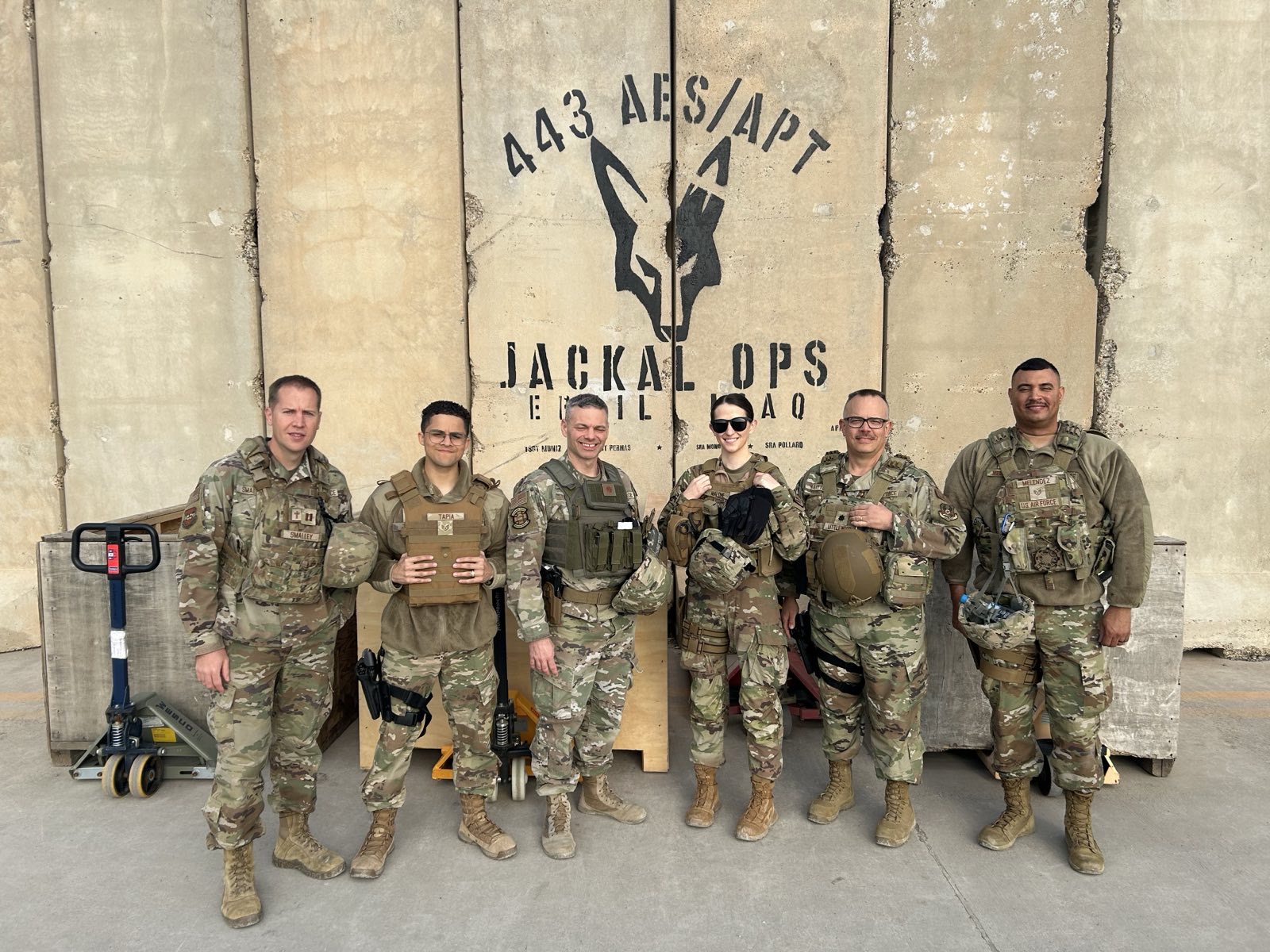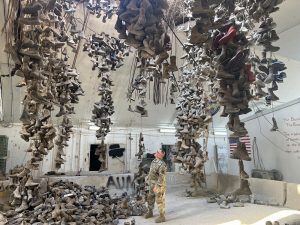Military Veteran Brings Crisis Skills to Penn State Health ER

There’s a running joke in the Emergency Department at Penn State Health Holy Spirit Medical Center.
If something is going haywire or if there’s a rush of patients bursting through the Emergency Room doors, it’s probably happening on Keith Littlewood’s watch, and the 59-year-old nurse and U.S. military veteran is ready to handle any mayhem.
“Thankfully, he’s very calm and levelheaded and always navigates challenging situations so well,” said Kristen Mariani, nurse manager of Holy Spirit Medical Center’s Emergency Department. “Remaining calm in very high-stress situations is very helpful to the entire team because they look to Keith as a resource, as someone to help guide them on the unit.”
Littlewood admits he enjoys calming chaos. He’s embraced it throughout his life, whether it’s as a part-time night-shift nurse, as a lieutenant colonel in the Pennsylvania Air National Guard or as a volunteer fireman.
“In the military, crisis management is a big part of the training that we get. Because of that, I’ve had more experience than a lot of people I work with only because I do both military service and nursing” said Littlewood, who lives in Enola with his wife of 23 years, who is also a nurse. “That ability to manage a crisis is important so that we can do what we need to do in the ER. And, hopefully, I provide some of that experience and mentorship to folks.”
In October, a patient became unruly in the ER, and Littlewood immediately stepped in to help his less experienced co-workers. He managed to de-escalate the situation by getting in between the patient and his co-workers during what was a contentious moment.
“He’s always willing to jump in and help out,” Mariani said. “I just think he’s amazing.”
A veteran of keeping things organized
Littlewood has served in the military for 43 years, first joining the Army National Guard at age 17. He worked as a civilian paramedic/emergency medical technician and eventually returned to school to earn his nursing degree. In 2001, Littlewood accepted a full-time administrative position with the Pennsylvania Air National Guard’s 193rd Special Operations Wing and is currently a logistics readiness squadron commander, supervising 140 employees.
In his military position, Littlewood makes sure people and equipment are where they are supposed to be, whether it’s locally or overseas. He brings those same organizational skills to Holy Spirit Medical Center.
“In the ER, you’re getting those four or five patients from a motor vehicle accident or one patient after another after another. You manage it, that becomes order, and that’s an achievement,” Littlewood said. “It feels good to be part of a team that can do that.”
Recently, Mariani said the ER was full and there was a spillover of patients. Littlewood took control, prioritizing the cases and making sure everyone was seen as swiftly as possible.
“Every single one of our beds was a patient holding, and we still had patients out in the waiting room needing to be seen,” she said. “And Keith was able to help facilitate getting those patients seen. So, I was like, ‘Of course, this happens when you’re in charge.’”

Keith Littlewood gets ready to toss his combat boots on the “Boot Chandelier” in Kuwait in April 2024. According to military lore, if the boots stay on the chandelier, it means he won’t be deployed to that location again.
Teamwork in the service and in the ER
Littlewood is one of hundreds of veterans employed by Penn State Health, which has received myriad honors for its support of military service personnel, including Vets Indexes Recognized Employer distinctions in 2023 and 2024. Littlewood said he often can tell who has military experience at Holy Spirit Medical Center by the way they carry themselves and the way they seamlessly join in team tasks, a skill crucial in military missions.
“A lot of veterans work here, but you probably wouldn’t know half of them were veterans because they’re very quiet about it,” Littlewood said. “I walk the halls, and I know who they are because there’s something about military service that you can identify in people without even having to ask. Most of us enjoy teamwork, and that’s part of why we do what we do in the hospital.”
Littlewood said he’s always appreciated the camaraderie within Holy Spirit Medical Center’s Emergency Department, where he has worked for 10 years. He treasured his co-workers support while he was deployed from September 2023 to April 2024 at Ali Al Salem Air Base in Kuwait.
Penn State Health kept Littlewood’s job waiting for him during that time, and members of the emergency department remained in touch through letters and emails while he was gone. As a sign of appreciation when Littlewood returned, he presented the staff with a United States flag flown during missions to Iraq, Syria and Lebanon. It’s proudly displayed in the department’s main office.
“He showed up to our staff meeting and was like, ‘Hey, before we get started, I have something.’ And he just flips this out of a bag, and we were speechless,” Mariani said. “It was so unexpected. It’s such a huge honor that he presented us with this flag.
“There were definitely tears – from us, but not from him,” she added with a laugh.
Penn State Health’s Military Leave Policy
Penn State Health employees who serve in the military are provided rights to employment, benefits and other provisions as specified in the Uniform Services Employment and Reemployment Rights Act. Military leave is available to all full-time and part-time employees who have completed at least one day of employment at Penn State Health, who perform voluntary or involuntary duty in the service and are required to be absent from work due to that service. Full-time employees are eligible for 15 days of pay per calendar year for worktime missed due to uniformed service. Part-time and PRN employees are not eligible for military pay.
If you're having trouble accessing this content, or would like it in another format, please email Penn State Health Marketing & Communications.
